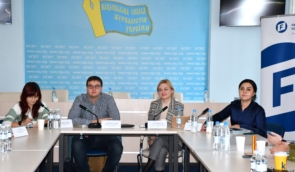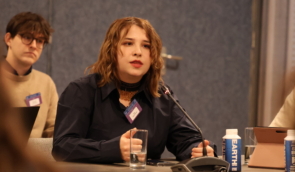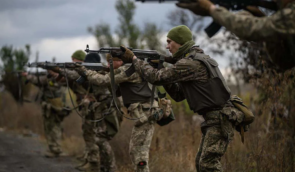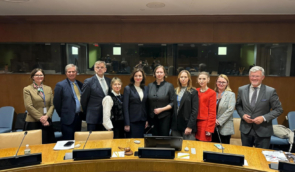ZMINA joined the Ukraine Recovery Conference in Berlin
On June 11-12, the Ukraine Recovery Conference (URC2024) took place in Berlin. More than two thousand politicians, diplomats, representatives of business, local authorities and civil society from different countries took part in the two-day event. Human Rights Centre ZMINA was represented by the International Advocacy Officer Tetiana Zhukova.
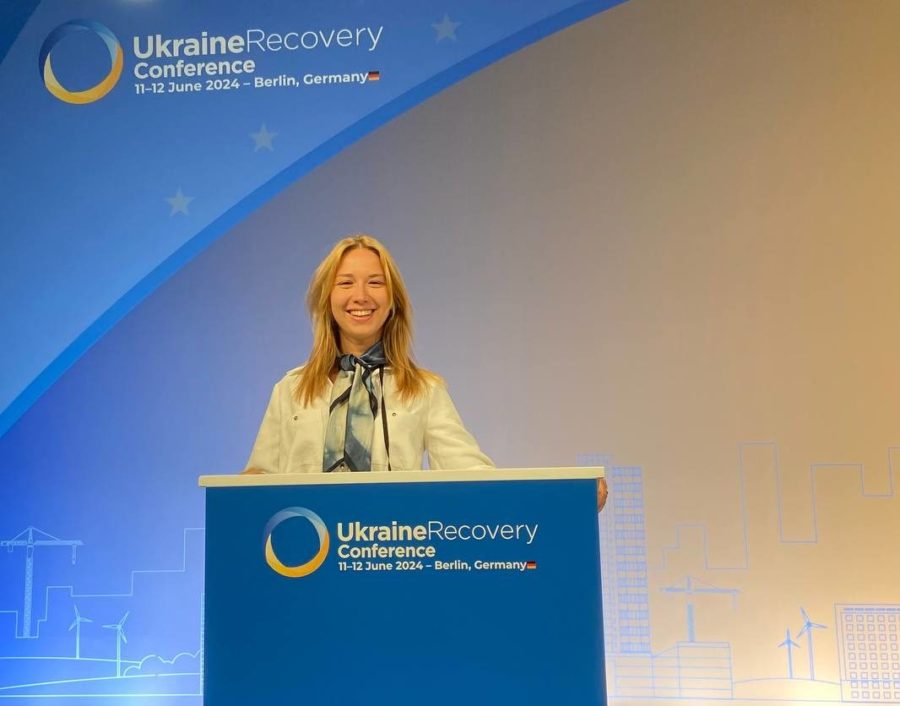 Photo: Tetiana Zhukova
Photo: Tetiana ZhukovaThe main goal of the conference is to consolidate international support for the recovery, reconstruction, reform and modernisation of Ukraine. This includes emergency assistance to meet urgent needs, implementation of rapid recovery projects, creation of an enabling environment for business and private investment, and active involvement of civil society in the reconstruction process.
In particular, this year’s event focused on four topics:
- business dimension – involvement of the private sector for reconstruction and economic growth;
- human dimension – social recovery and human capital for the future of Ukraine;
- local and regional dimension – restoration of communities and regions;
- EU – European integration and related reforms.
The event in Berlin was opened by President of Ukraine Volodymyr Zelenskyy, Chancellor of Germany Olaf Scholz and President of the European Commission Ursula von der Leyen.
“In the twentieth century, Europe underwent a massive recovery. A continent that was battered by the world wars, Europe was reborn into a force without which global life cannot be imagined today. Everything in Europe worked for this: the social strength of the countries, the production traditions and industrial culture of Europeans, in particular Germans, the correctly chosen path, and interaction with the global world. But the basis of all this was specific decisions – specific agreements, business ideas, particular projects that worked… We will come out of this conference with agreements worth billions of euros for our defence – the production of military equipment and weapons in Ukraine; for our energy sector – the repair and development of new and more modern energy; and for our social life – and this applies, in particular, to education in communities, housing construction, and the supply of medical equipment”, Volodymyr Zelenskyy said in his opening speech.
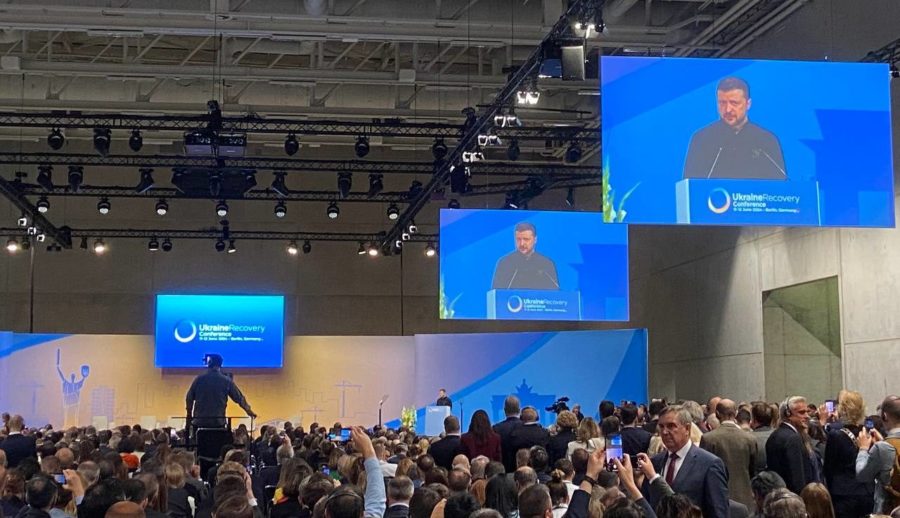 Photo: Speech by President of Ukraine Volodymyr Zelenskyy
Photo: Speech by President of Ukraine Volodymyr ZelenskyyUnfortunately, due to the Russian invasion, the casualties, recovery needs, and complexity of the reconstruction process are increasing every day. To ensure the country’s sustainable reconstruction, it is important to establish a systematic dialogue between civil society, the government and European partners. Therefore, a significant achievement of this year’s event was the wider involvement of civil society.
“As of today, the Prosecutor General’s Office of Ukraine has registered more than 134,000 crimes of aggression and war crimes committed as a result of the Russian invasion. Such a massive amount of damage and, as a result of further work to bring the perpetrators to justice and support the victims, requires cooperation and division of responsibilities. Civil society is involved in documenting the international crimes committed, providing humanitarian and legal assistance, evacuating the population, and returning our people from captivity, which is why it is an integral component on the path to the recovery of Ukraine”, said Tetiana Zhukova.
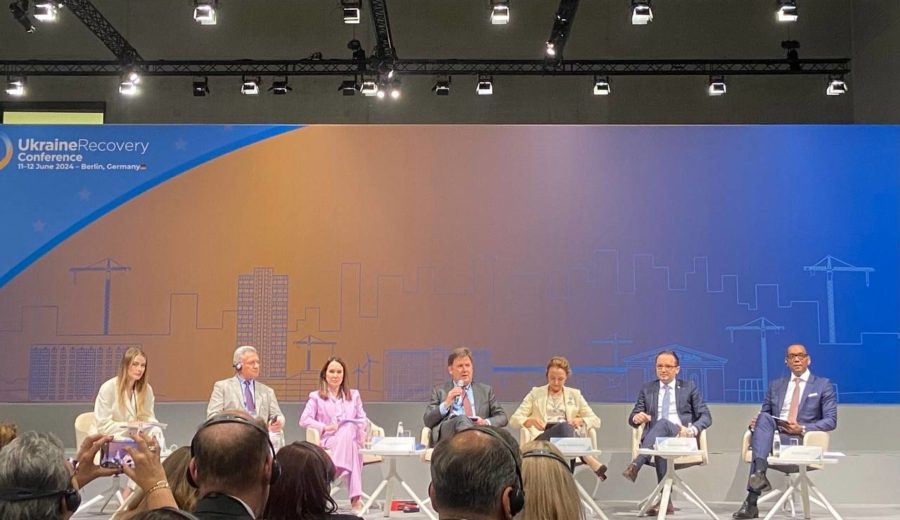 Photo: Plenary session on the rule of law, judicial reform and the creation of an international compensation mechanism
Photo: Plenary session on the rule of law, judicial reform and the creation of an international compensation mechanismNGOs joined various plenary sessions and had the opportunity to share their views on the integration of veterans, refugees and internally displaced persons; sustainable community development; protection of Ukraine’s cultural heritage; educational processes during the war; rule of law and the establishment of an international compensation mechanism; and ensuring gender-inclusive recovery of Ukraine.
In addition, ZMINA’s international advocacy officer met with Renata Alt, Chair of the Bundestag Committee on Human Rights and Humanitarian Assistance, as well as representatives of the Humanitarian Assistance Department of the German Foreign Office. She highlighted the problem of systematic and mass persecution of civilians in the temporarily occupied territories, and shared documented cases of abductions, arbitrary detention and torture of civilians. Zhukova stressed the need to release civilian hostages and political prisoners, support victims of war crimes and bring the perpetrators to justice.
“Ultimately, the recovery of Ukraine is not just about buildings. It is about civilians who are being taken by Russians to unknown destinations and keep in basements for months; it is about families waiting for their loved ones at home and spending their last money on lawyers for them; it is about the crippled lives of tortured Ukrainians; it is about our people under the occupation. For the sustainable restoration of the state, it is necessary to develop an effective and fair system of social assistance to all those affected by the Russian invasion since 2014, as well as to work constantly to return our fellow citizens”, Zhukova added.
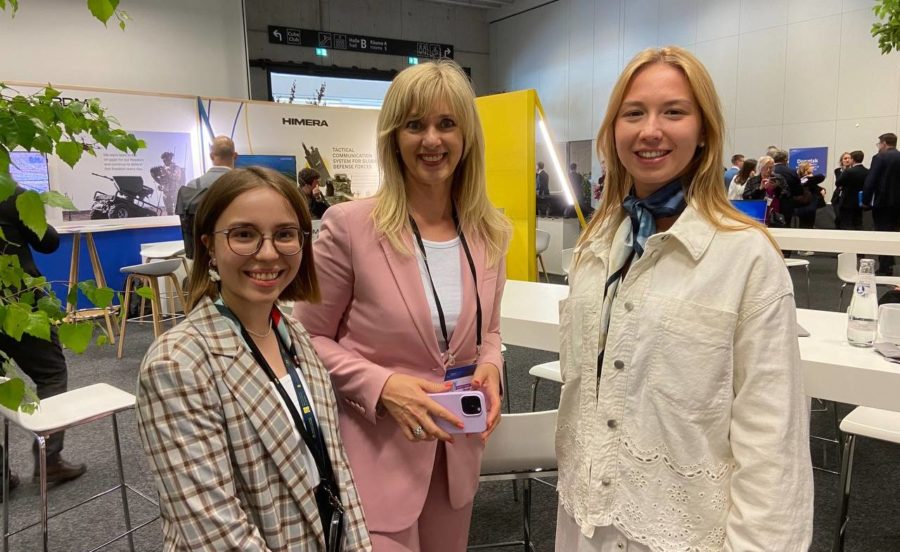 Photo: Daryna Pidhorna (RCHR), Renata Alt (Member of the Bundestag), Tetiana Zhukova (ZMINA)
Photo: Daryna Pidhorna (RCHR), Renata Alt (Member of the Bundestag), Tetiana Zhukova (ZMINA)For reference: URC2024 is a continuation of a series of annual high-level events dedicated to the rapid recovery and long-term reconstruction of Ukraine, which have been held since the beginning of the full-scale Russian aggression against Ukraine. This is the third such conference since the full-scale Russian invasion. The previous conferences were held in Switzerland and the United Kingdom. The next Ukraine Recovery Conference will be held in 2025 in Italy.
Main photo: Recovery window
If you have found a spelling error, please, notify us by selecting that text and pressing Ctrl+Enter.


